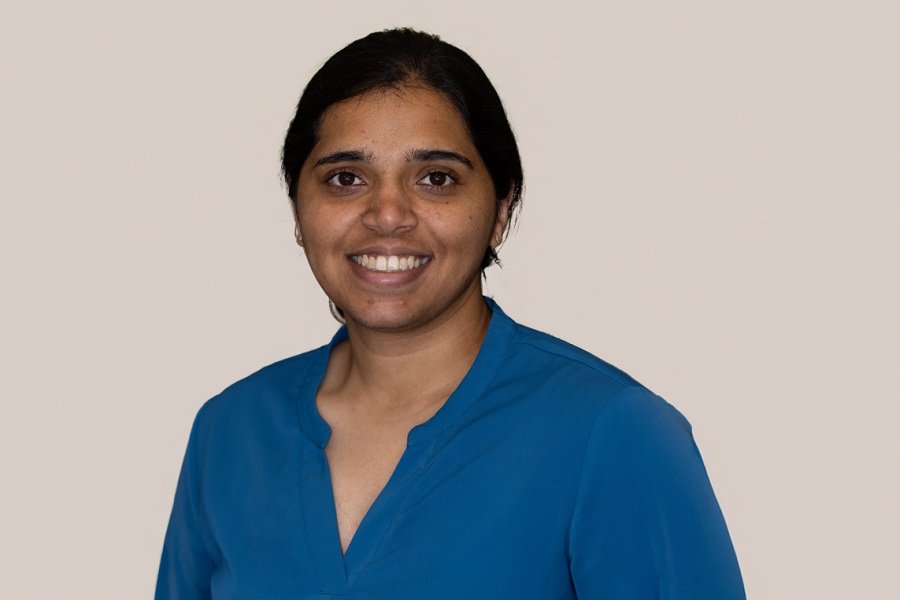Alumna Vidya Chhabria receives best dissertation award

Alumna Vidya Chhabria (Ph.D. 2022) was recently recognized as the winner of the University of Minnesota Graduate School's Best Dissertation Award in the physical sciences, mathematics, and engineering category for 2024. Her dissertation titled, “The Next Wave in EDA: Exploring Machine Learning and Open-source Philosophies for Physical Design,” presents machine learning (ML) and open-source solutions to resolve critical problems that have plagued electronic design automation (EDA). Chhabria earned her doctoral degree under the guidance of Robert and Marjorie Henle Chair in Electrical Engineering Sachin Sapatnekar.
Integrated circuits (ICs) are ubiquitous in most powerful and compact electronics such as those in medical devices, drones, smartphones, data centers, and others. These ICs perform multiple functions (phone calls, videos, photos) and contain billions of transistors and wires while also consuming low power and offering long battery life. Currently, these complex circuits are designed using EDA algorithms and methods. Despite their sophistication, they pose some key challenges, namely, the high costs associated with EDA tools, their heuristic nature that delivers suboptimal outcomes, and the long computation times that slows down their delivery.
In an era where devices are getting smarter, and everything is connected, the requirements on EDA tools are increasingly demanding. Chhabria's thesis has proposed smart ML-based chip design methodologies that sow the seeds of next-generation EDA tools and address these challenges. It demonstrates how ML and open-source philosophies for EDA can address these challenges and transform how we design chips today. Her research presents ML-based solutions to key bottlenecks that hamper IC design including building power delivery networks, and thermal analysis which is critical for maintaining performance and reliability. Chhabria’s research has shown that her ML-based chip design offers faster delivery with no decline in quality as compared to conventional EDA tools. Her work has gained traction and has been successfully applied on industry test cases, well received at premier EDA conferences (International Conference on Computer-Aided Design and Design Automation Conference), and most significantly, has been implemented by industry leaders such as Nvidia, Qualcomm, Tenstorrent Inc., and SK Hynix.
Commenting on the significance of Chhabria’s research, Professor Sapatnekar says, “Vidya’s work develops design automation techniques that are vital to the design of advanced chips. Her thesis has expanded the frontiers of knowledge by innovatively applying machine learning methods for analysis and optimization tasks in chip design. She has also been at the vanguard of a new movement towards open-source software to democratize chip design, and this participation has compounded the impact of her work, allowing it to be deployed in industry.”
Chhabria is no stranger to recognition for her work. As a graduate student, she was the recipient of the 2021-2022 doctoral dissertation fellowship awarded by the University's Graduate School, the Louise T. Dosdall Fellowship in 2020, and the Cadence Women in Technology Scholarship in 2020. She was one of two key authors of an award-winning paper at the 2021 IEEE/ACM International Conference on Computer-Aided Design. The paper titled, "Analytical Modeling of Transient Electromigration Stress based on Boundary Reflections,” addresses the problem of electromigration that adversely affects circuits, and leads to their decline. It won the best paper award at the conference. Chhabria was also an invited panelist for a discussion on “Democratizing Chip Design” at the Grace Hopper Celebration of Women in Computing.
Currently Chhabria is an assistant professor with the School of Electrical, Computer, and Energy Engineering at Arizona State University. She conducts research on ML-based EDA tools for the next generation of heterogeneously integrated ICs and the design of environmentally sustainable ICs.
The Best Dissertation Award is a recognition, by the Graduate School, of the University's top recent Ph.D. graduates in each of four broad areas: arts & humanities (including history and philosophy), biological and medical sciences, physical sciences and engineering, and social and behavioral sciences and education.